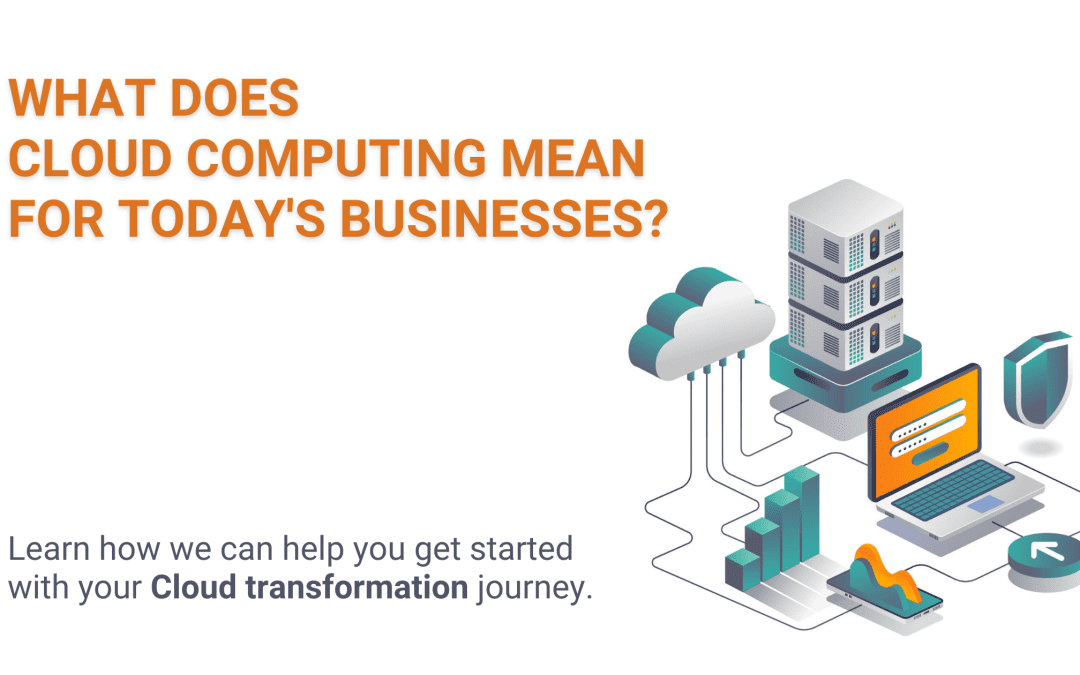What does cloud computing mean for today’s businesses?
Cloud computing supplies various services, such as data storage, servers, databases, networking, and software, through the Internet.
Cloud storage allows you to save files to a remote database and retrieve them whenever you need them.
Public and private services are available online for a charge; public services are housed on a network for particular customers, while private services are hosted on a network for individual clients.
Companies see the cloud as a critical facilitator for completing their digital transformation.
As organizations move from a piecemeal strategy to a more comprehensive end-to-end digital transformation with the cloud at its core, the cloud is becoming a top C-suite agenda item.
The Internet enables widespread cloud computing, and it is the most popular method of accessing cloud resources.
Intranets and specialized networks are also employed if there is a private cloud.
Cloud computing resources may be supplied and released quickly with no administrative effort or involvement from service providers.
This implies that an organization may utilize more or fewer servers, stores, apps, or services and adjust the ones it does use to fit its needs and when it needs to, all without putting in much work.
There are six critical aspects of cloud computing:
The five features are,
- On-demand,
- Self-service,
- Broad network access,
- Resource pooling,
- Fast flexibility, and
- Measurable service.
These are the characteristics that set it apart from other computing paradigms.
There are three service models available.
These are the most common services offered by cloud service companies- Infrastructure as a Service (IaaS), Platform as a Service (PaaS), and Software as a Service (SaaS) are the three types (SaaS).
It includes four deployment models, each corresponding to a distinct manner of owning and operating cloud resources.
The four options are,
- Private Cloud,
- Public Cloud,
- Community Cloud, and
- Hybrid Cloud.
Cloud computing has several advantages for your company.
It enables you to set up a virtual office, giving you the freedom to connect to your company from anywhere, at any time.
Access to your data has never been easier, thanks to the rising number of web-enabled devices utilized in today’s corporate environment (e.g. smartphones and tablets).
Using cloud computing to manage and maintain your IT systems might save you money.
You may save money by utilizing the services of your cloud computing service provider rather than acquiring pricey systems and equipment for your organization.
Your company can quickly scale up or reduce its operations and storage requirements to fit your demands, giving you more flexibility as your needs evolve.
Instead of acquiring and installing costly upgrades yourself, your cloud computing service provider may take care of it for you.
Business continuity planning requires you to protect your data and systems. Having your data saved in the cloud guarantees that it is backed up and preserved in a secure and safe location, regardless of whether you face a natural disaster, power outage, or other crisis.
Accessing your data rapidly helps you continue doing business as usual, minimizing downtime and lost productivity.
Employees can be more flexible in their work habits because of cloud computing. For example, you can access data when at home, on vacation, or on your way to and from work (providing you have an internet connection).
You may connect to your virtual office quickly and simply if you require access to your data while off-site.
Cloud computing may be used in a variety of ways by businesses. Some customers retain all of their programs and data in the cloud, while others take a hybrid approach, keeping some on private servers and others in the cloud.
Tomorrow’s victors will be those who can manage change quickly, make the correct decisions, and collaborate with the right partners to supplement their strengths.

